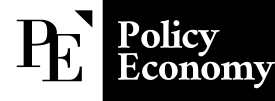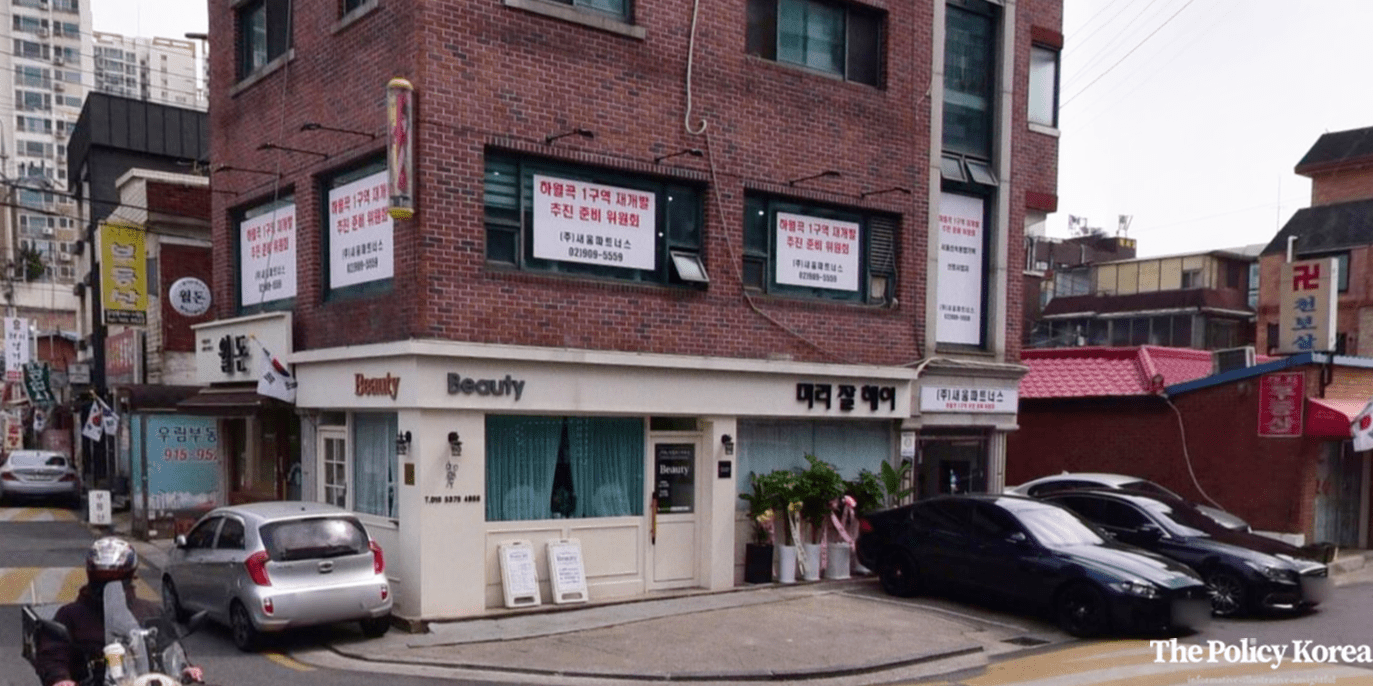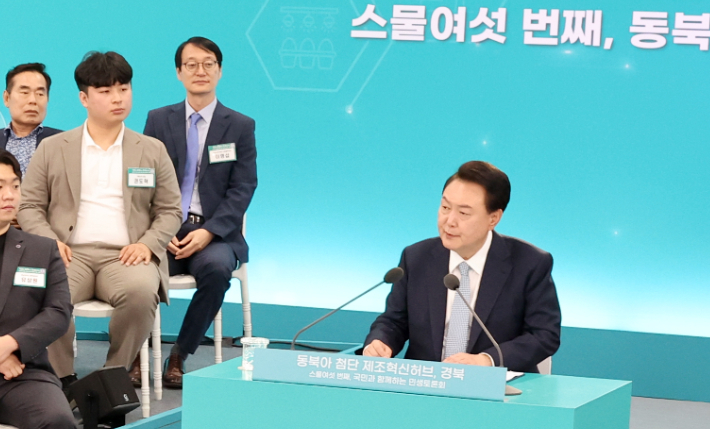[동아시아포럼] 대안언론 범람하는 인도네시아, ‘대안’이 ‘대안’이 아닌 이유
SNS 기반 대안언론 급증, 원인은 기존 언론 기존 언론 매체, 지역 권력과 긴밀한 유착관계 대안언론도 언론 질서 파괴 중, 저널리즘 구축 나서야
[동아시아포럼]은 EAST ASIA FORUM에서 전하는 동아시아 정책 동향을 담았습니다. EAST ASIA FORUM은 오스트레일리아 국립대학교(Australia National University) 크로퍼드 공공정책 학교(Crawford School of Public Policy) 산하의 공공정책과 관련된 정치, 경제, 비즈니스, 법률, 안보, 국제관계 및 사회에 대한 연구·분석 플랫폼입니다.
저희 폴리시코리아(The Policy Korea)와 영어 원문 공개 조건으로 콘텐츠 제휴가 진행 중입니다.
인도네시아에서 SNS 채널을 기반으로 활동하는 대안언론(유사언론) 계정이 급증하고 있다. 지역 권력과 결탁한 기존 언론 매체에 대한 불신에서 비롯된 대안언론은 최근 권력자의 부패와 불법적 행위에 대한 비판 여론을 등에 업고 양적 확산 중이다. 하지만 저널리즘에 대한 이해와 윤리 의식이 부족한 대안언론들이 인도네시아의 언론 질서를 해치고 있다.

SNS에서 불붙은 권력층 비판 여론
올해 들어 인도네시아는 지역 정치인과 유지에 대한 청년층의 비판 여론이 유난히 뜨겁다. 비판을 주도한 인도네시아 청년은 호주 출신 대학생 비마 유도 사푸트로(Bima Yudho Saputro)와 중학생 샤리파 파디야 알카프(Syarifah Fadiyah Alkaff)다. 비마는 람풍주 주지사 아리날 주나이디(Arinal Djunaidi)를, 샤리파는 잠비 시장 샤리프 파샤(Syarif Fasha)를 지목, 비판하며 청년층의 동참을 호소했다. 두 사건 모두 해당 정치인의 부패가 원인이었다.
인도네시아 현지 언론은 두 청년의 호소를 크게 보도하지 않았지만, 틱톡 등 SNS 채널을 통해 크게 확산해 전국적인 반향을 일으켰다. 비마와 샤리파는 SNS 채널을 주 무대로 아리날 주지사와 샤리프 시장을 포함해 인도네시아 전역의 부패 지도자들을 대상으로 직접적인 비판과 부패 척결을 위한 시민 참여를 독려했다.
비마와 샤리파가 처음부터 SNS를 선택한 것은 아니다. 지역민의 참여를 위해 인도네시아 지역 언론 매체를 접촉했으나 보도에 실패하자 접근이 쉬운 SNS를 택한 것이다. 인도네시아 전문가들은 현지 언론 보도 실패에 대해 이미 현지 지역 언론과 온라인 매체가 지역 정치인 혹은 유지들과 결탁했기 때문에 기사 노출이 힘들었을 것이라 설명했다.
인도네시아 지역 언론 발달과 정언 유착
인도네시아는 민주화가 늦게 진행된 국가다. 인도네시아는 1967년부터 32년간 절대적인 권력을 누렸던 수하르토(Suharto) 전 대통령 재임 기간에 반정부 인사가 학살되고 사회운동 단체 지도자가 빈번히 암살당하는 등 정치적으로 어두운 시절을 보냈다. 하지만 1998년 수하르토 정권 붕괴 후 ILO(국제노동기구·International Labour Organization) 핵심 협약 중 하나인 ‘결사의 자유 및 단결권 보호에 관한 협약’을 1998년 비준하는 등 국제기준에 맞는 결사의 자유가 일정 수준까지 보장되면서 본격적인 민주화 시기에 접어들었다. 이 시기를 레포르마시(Reformasi·개혁)라고 부른다.
인도네시아의 언론 매체 수는 레포르마시를 기점으로 기하급수적으로 증가해 2018년엔 약 47,000개로 늘었다. 그러나 인도네시아 저널리즘은 양적 성장에도 불구하고 질적 성장을 이루지 못한 채 민주주의의 지탱하는 제4의 기둥으로 변하지 못했고, 권력자를 감시하는 역할도 수행하지 못했다.
그 이유에 대해 전문가들은 인도네시아 언론의 발달 과정을 지목한다. 레포르마시 초기에 언론 매체가 급증한 것은 지방 선거에서 지역 유지들이 자신이 지지하는 후보를 당선시키기 위해 무수한 지역 언론사를 설립했기 때문이다. 지역 유지와 유착관계로 태어난 인도네시아 지역 언론 매체는 디지털 전환을 거치며 다수가 사라졌지만, 온라인 매체로 전환하며 살아남은 일부 매체는 지역 유지 및 지역 정치인과 결탁 관계를 공고히 하며 지역 이권을 확보했다.
지난 3월 인도네시아 리아우 지역에서 발생한 사례는 지역 유지와 지역 언론의 유착관계를 단적으로 보여준다. SNS 계정을 통해 폭로된 내용엔 리아우 지역 유지들과 함께 해외여행을 떠나는 언론사 관계자들의 모습이 담겼다. 이는 SNS상에서 폭발적인 관심을 받았지만 역시나 인도네시아 현지 언론엔 크게 보도되지 않았다.
이러한 상황에서도 지방 정부에 비판 목소리를 내는 인도네시아 지역 언론이 소수 존재한다. 그러나 현지인들은 해당 언론 매체를 순수한 저널리즘의 대변자라고 평가하지 않는다. 해당 지역 언론사들이 지방 정부에 비판적인 기사를 보도하는 이유는 지방 정부가 주도하는 이권 사업에 합류하지 못했거나, 노이즈 마케팅을 통한 언론사 확장이 목적이기 때문이다. 해당 언론 매체 기자들은 지방 정부에 비판적 기사를 흉기로 삼아 주지사부터 작은 마을 이장까지 협박하며 금품을 갈취한다.
‘비판적 언론 매체’가 언론을 악용해 협박이나 갈취를 자행할 수 있는 이유는 인도네시아 지방 정부에 만연한 부패 혐의와 스캔들 때문이다. 지방 정부의 어두운 그림자가 지역 언론이 기사와 돈을 교환할 수 있게 해준 것이다. 간혹 일부 지역 언론 매체에서 공익적 저널리즘에 가까운 기사를 보도하기도 하지만, 이는 SNS 채널에서 이미 공론화한 이슈거나 전국 언론 매체에 기보도된 경우다.
언론 신뢰도 하락이 부른 대안언론의 탄생
지역 언론이 지방 정부나 지역 유지에게 유리한 기사만 보도하자 지역 언론에 대한 인도네시아 국민의 신뢰도는 크게 하락했다. 그 결과 인도네시아에선 SNS 채널을 중심으로 활동하는 대안언론이 급증했다. 베리타 잠비(Berita Jambi), 파타이 소스메드(Partai Sosmed)가 대표적인 예다. 이와 같은 대안언론 SNS 계정 대부분은 유료 후원을 주 수입원으로 삼고 경제적 목적으로 뉴스를 유포한다.
문제는 대안언론 계정을 운영하는 사람들이 대부분 저널리즘에 대한 이해나 자격이 부족하다는 점이다. 그럼에도 SNS라는 채널의 장점을 활용해 기존 미디어 매체보다 대중의 참여를 적극적으로 유도하며 크게 성장했다. 추가로 이슈에 대한 동영상 촬영과 업로드를 통해 기존 언론 매체에서 발견할 수 없는 ‘탐사 취재’에 대한 국민의 갈증을 채워줬다. 핵심 이슈에 대해선 시민들에게 동영상을 제보받아 업로드하는 등 비교적 소통하는 언론 매체의 모습을 보여 주고 있다.
인도네시아에서 SNS 기반 대안언론의 존재는 현지 언론 매체들의 큰 관심을 받았다. 하지만 그 관심의 배경에는 저널리즘 경쟁자로서가 아닌 경제적인 이유가 내포돼 있다. 대안언론 대부분이 부족한 뉴스 생산 능력을 메꾸기 위해 자사의 계정에 기존 언론 매체의 기사를 그대로 복사해서 붙여 넣어 트래픽 이익을 얻고 있기 때문이다.
인도네시아 정치인들도 SNS 기반 대안언론에 관심을 가졌다. 관심의 목적은 SNS상 비판적 이슈를 중화하거나 정치적 목적으로 사용하기 위한, 기회주의적 접근이었다. 인도네시아 일부 지역 지도자들은 레포르마시 초기와 마찬가지로 유사 대안언론 계정 개설을 시도했고 일부는 실제로 운영 중이다.
올바른 저널리즘 구축이 인도네시아 국민을 위한 길
전문가들은 SNS 기반 대안언론이 확산하는 주된 이유가 기존 언론 매체들이 인도네시아 지도자들의 부패와 불법적 행동에 동조하고 민주주의의 수호자라는 언론의 역할에 실패했기 때문이라고 지적한다. 그런데도 불구하고 현재 인도네시아 대안언론이 기존 언론 매체를 대체할 수 있는 것은 아니다. 앞서 언급했듯 대안언론은 저널리즘에 대한 이해와 기술이 부족하고 윤리적 직업의식이 낮기 때문이다. 명확한 저널리즘을 근거로 운영하지 않기 때문에 확인되지 않은 사실을 이슈화하는 등 인도네시아의 언론 질서를 해치고 있다.
인도네시아 정부가 언론 질서 확립을 위해 하루빨리 대안언론 계정을 규제해야 하는 이유다. 인도네시아 대안언론 계정에서 만연한 어뷰징(Abusing·트래픽 유입을 목적으로 같은 기사를 복사해 여러 번 송출하는 것) 행위를 즉시 제한해야 한다. 아울러 다른 매체에서 가져온 기사를 무단으로 SNS 채널에 게재하는 행위를 금지해야 하며, 기사 콘텐츠를 게재할 시 해당 언론사에 일정 비용을 지불해야 한다.
추가로 지역 언론 매체는 지방 권력에 기대지 않고 독립적인 운영을 할 수 있도록 개선책을 찾아야 한다. 높은 윤리적 기준과 올바른 저널리즘에 기반한 기사를 보도하기 위한 목적으로 인도네시아 저널리즘 발전을 위한 유료 구독이나 크라우드 펀딩 등 대체 수익 구조를 모색하는 식이다. 마지막으로 국가언론기관(Dewan Pers)의 인증을 받은 언론사만 정식 언론사로 활동할 수 있도록 정부 차원의 정책 마련이 필요하다. 현재 인도네시아에선 언론사 인증 없이도 누구나 언론 매체를 설립해 활동할 수 있다.
공정한 저널리즘 구축을 위한 인도네시아 정부의 노력이 없다면 민주주의를 위한 저널리즘은 작동하지 않을 것이다. 인도네시아 저널리즘이 진정으로 비춰야 할 대상은 권력에서 소외당한 국민이다. 하지만 현재 인도네시아에선 저널리즘마저 국민을 소외하고 있다.
Why pseudo-media accounts can’t remedy Indonesian local media shortfalls
In 2023, Indonesia has been busy with conflicts between its youth and local elites. The first clash was between Bima Yudho Saputro, an Australia-based undergraduate student, and the governor of Lampung Province, Arinal Djunaidi. The second feud occurred in Jambi Province, involving Syarifah Fadiyah Alkaff, a middle school student, and Jambi’s mayor, Syarif Fash

Despite receiving limited local media coverage, these two local cases became a national sensation through social media channels such as TikTok. Bima and Syarifah leveraged the platform to voice their criticism of leaders that they considered corrupt.
The failure of local media — mainstream media outlets that operate in regional Indonesia and cover local stories, including legacy outlets and online-only new entrants — is largely due to their co-option by local political elites. The number of media outlets in Indonesia grew exponentially after the fall of former president Suharto in 1998, reaching 47,000 outlets in 2018. But the local media has failed to transform into an effective fourth pillar of democracy or to scrutinise the politically powerful.
In the early years of the reformasi era, many local elites purchased or founded local newspapers to support their candidacies in local elections. As a result of digitalisation, a score of Indonesian local newspapers died out. Some of those that managed to survive were drawn closer to local governments and politicians for fresh cash.
One example of the deep media co-optation by local elites is evident in a case from Riau Province in March 2023. Media personnel were observed having a vacation abroad with the province’s elites. Though this story was exposed by a pseudo-media account, it received minimal attention in the local media. While it is difficult to verify the story’s validity, the high frequency of local media officials meeting with local elites raises legitimate concerns.
While most local media outlets have been co-opted by the powerful, a minority have opted to become watchdogs. But the decision to bark criticism at local elites is not usually driven by a pure intention to offer public interest journalism. Local outlets often adopt critical stances because they either do not receive a sufficient share of the pie from local governments or are simply not influential. The personnel of these media outlets often use the media to extort government officials, from governors to village heads.
The number of scandals and corruption allegations involving local governments provides ample material for these ‘critical media outlets’ to exploit in exchange for economic incentives. Sometimes local media outlets do transmit critical news, but this typically occurs when the news has already gone viral on social media or been reported by national media outlets.
The mass media’s co-option by the politically powerful not only earns the media bad press, but also reinforces the idea that journalists are untrustworthy. This has contributed to the rise of pseudo-media accounts like Berita Jambi and Partai Sosmed on social media. These accounts disseminate ‘news’ for primarily economic purposes as seen in their profiles which usually advertise that they are open for paid endorsement.
Though many of the administrators running these accounts lack journalism skills or certifications, they gain far more active engagement than local media profiles. They also regularly receive videos from the public highlighting the problems faced by ordinary Indonesians, filling the void left by the absence of investigative reporting by local media outlets.
The presence and popularity of pseudo-media accounts has been a matter of great concern for local media outlets. These pseudo-media accounts regularly take news directly from the traditional media websites, sometimes even copying and pasting stories.
The viral phenomenon of exposing local leaders in Indonesia for corruption or misbehaviour on social media is undoubtedly a failure of the media in its role as a guardian of democracy. But the rise of pseudo-media accounts as a replacement for local media outlets is a problematic solution. These accounts often do not meet journalistic standards nor have ethical frameworks to guide them.
The economically opportunistic nature of pseudo-media accounts gives local politicians more options for co-opting critical voices. Across regional Indonesia, some local leaders have attempted to co-opt several accounts, with some of these attempts having already come to fruition.
The Indonesian government must regulate pseudo-media accounts. They should be barred from distributing news on social media, whether they seek the news themselves or take it from local media websites. They must also be required to pay local media outlets if they republish their content.
It is also crucial that the local media find ways to sustain their operations that do not depend on local government money. Providing high-quality journalism with high ethical standards and pursuing alternative funding sources such as subscriptions or crowdfunding should be high priorities.
The government should also ensure that only outlets verified by the national press body (Dewan Pers) are allowed to operate. Local media outlets are easy to set up and those without a Dewan Pers verification certificate operate freely across regional Indonesia.
Without these efforts, Indonesians living in the periphery will continue to be left behind while the fourth and fifth pillars of democracy work for elites and not for them.
원문의 저자는 호주국립대학교 아시아태평양대학에서 박사 과정 중인 무함마드 베니 사푸트라(Muhammad Beni Saputra)입니다.



























